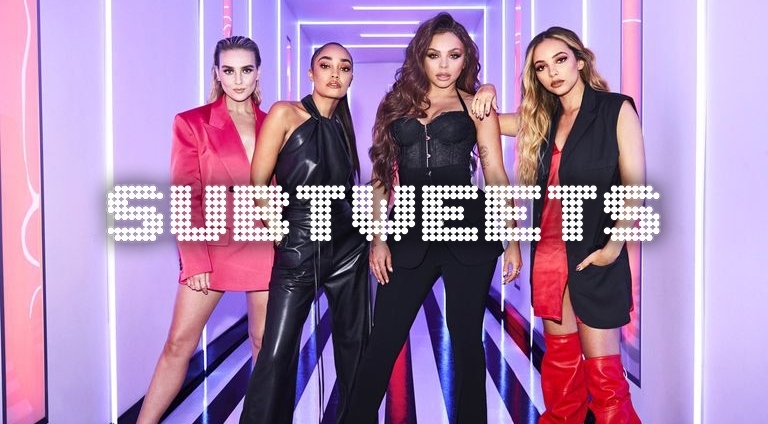For those old enough to remember their origins, TV singing contests were once a genuine cultural zenith. Exposing the process of making a star, they invited the audience into the factory and gave us the power to pull the levers. Together, we all got drunk on our new voting power – we constructed Hear’Say and Girls Aloud, and chose our side in the Brexit-bus style battle between Gareth Gates and Will Young. In 2008, actual Beyoncé deemed X Factor credible enough to duet on with winner Alexandra Burke, while 2010 introduced us to the five plucky auditionees that would go on to do modest things under the name of One Direction. It may never have been the most credibly of entries to the music industry, but it was certainly entertaining.
Of course, Little Mix know more about this process than most. When news broke that the 2011 X Factor winners would be hosting their own televisual search for the next big thing, fans were curious as to how the band might use their own experience to reignite the nation’s affection for singing shows. If the last decade has seen our interests wane, it’s likely because this is a TV format that has long thrived off a formula of basic psychological cruelty, catapulting often-impressionable teenagers to fleeting stardom while mining them for sob stories in a bid to win the nation’s favour. From JLS to Jedward, Cher Lloyd to Katie Waissel, the process of mocking contestants on everything from their class background to their appearance has only grown meaner under the scrutiny of social media. What was once considered fair entertainment game now feels closer to target practice, distinctly at odds with 2020’s push for empathy.
Mashed together themselves as a second-chance opportunity to stay in the competition, Little Mix’s rise to national prominence is particularly impressive when you consider just how much race and size-related shaming they had to wade though as teenagers. They remain rare in their ability to stick together and graciously weather the abundance of criticism that is aimed their way, but have actively criticise the lack of aftercare or emotional support they were granted by the X Factor teams, denied any real sense of autonomy or personal expression. As they have put it themselves in recent press, is it really ethical for them to encourage young people to actively follow in their TV footsteps?
Two episodes deep, and Little Mix: The Search already feels like it is delivering on it’s promise to do things differently. With the intention of constructing a selection of bands who will compete to support Little Mix on tour, solo auditionees are each given their moment but quickly bond with others in their category, a ready-made unit that offers swift safety in numbers. Everything from the set to the one-episode-per-category format feels relaxed and informal, and of the auditions that make the final TV edit, none are resolutely bad, doing away with the problematic ‘point-and-laugh’ element of previous shows. Best of all is the resolute lack of ego; a set of equally positioned, culturally-relevant judges, there is no cause to actively battle it for the position of the ‘nasty’ host. Instead, criticisms are dished out evenly with a comforting, sisterly air, leaving even the disappointed hopefuls feeling chuffed with their one-on-one time with the band. Of the singers who do get through, they have their own input on the final styling and choreographical choices, and there are no obvious bids to make any one-group member the star – much like Little Mix themselves, the focus is on mutual team effort.
Of course, with the majority of the season left to go, it is still too soon to know if The Search can truly do enough to reignite the genre. Some of the usual stereotypes persist – skinny heteronormative contestants with immaculate hair remain the most victorious, and a lot of the ‘It’s a yes from me’ clichés are so unavoidable that even Jade finds herself delivering them in self-deprecating tones, well aware of their predictability. But with four categories left to explore (including the rarely–championed RnB and instruments rounds), I am hopeful that Little Mix’s undeniably charismatic force will prove that singing competitions can be fun and immersive without letting go of their much-needed compassion and inclusivity. Promising signs are already there – contestants of colour and perceived LGBTQIA+ expression are already amongst the most beloved online, and the usual snarky tweets that accompany an X Factor-type broadcast are mostly replaced by excitable Mixers giddy on the vindicating sight of their favourite band on the other side of the judging table.
This weekend’s episode – girlbands – will be the true test. A chance for Little Mix to truly channel their experience, it airs nearly nine years to the week since they made their first live appearance as a group on X Factor, clad in matching gaudy outfits and delivering an unsure rendition of Nicki Minaj’s ‘Superbass’. Their nervousness was palpable, only just beginning to bond with one another and completely unprepared for the road ahead. For whatever reason, the nation gave them a chance. Under their kind tutelage, there is no telling what this next generation might become.
Little Mix: The Search airs on BBC One on Saturdays at 7pm and Sundays at 6:45pm.







